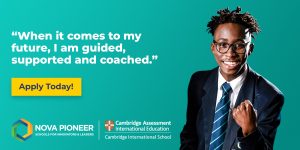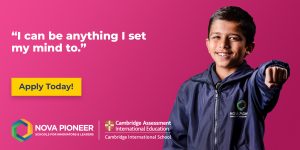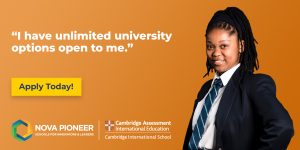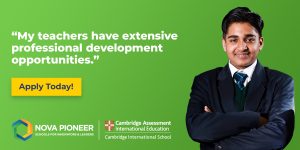Celebrating Academic Excellence
I would like to take this opportunity to celebrate our top academic achievers (Grade 8 -10) for 2021. I wish to congratulate these students for managing to produce these excellent results in what was, again, an unusual year. We are very proud of them. They exemplify our Culture Principles of
I would like to take this opportunity to celebrate our top academic achievers (Grade 8 -10) for 2021. I wish to congratulate these students for managing to produce these excellent results in what was, again, an unusual year. We are very proud of them. They exemplify our Culture Principles of High Expectations, Always Growing and being Solutions First. Well done!
While recognising these examples of excellence, I also wish to congratulate all the students who made the best of this year. Overall, our data show an ongoing improvement in the academic performance of almost all of our students. I must commend our teachers on also pulling out all the stops and not allowing the complexities of the past two years to get in the way of delivering excellent teaching. I salute you.
Lastly, to our parents. You have been incredibly supportive of both us as a school and your children. In a true spirit of being Greater Together, you have rolled with the punches while trusting us to get on with the job. It is such a privilege to help lead a school when you feel that you have the implicit trust and support of parents. We thank you.
We look forward to hosting a formal awards assembly in the new year to recognise these students as well as the IGCSE, AS and A-level students.
Academic Awards Term 3 2021 for Grades 8 to 10
Academic half-colours
Grade 10: minimum of 4 A’s in the November examinations
Grade 10
– Arjun Thulsie (6 As)
– Afrikaans (82%)
– Computer Science (96%)
– English (82%)
– Physics (88%)
– Biology (91%)
– Mathematics (92%)
Academic certificate of merit
Grades 8-10: minimum of 3 A’s in the November examinations
Grade 10
Gadija Shaikh (3 As)
– Art and Design (81%)
– Biology (81%)
– Mathematics (82%)
Grade 9
Sabeeha Adams (6 As)
– Commerce (94%)
– Geography (80%)
– English (83%)
– History (97%)
– Mathematics (80%)
– Science (85%)
Naledi Djiogo (5 As)
– Commerce (80%)
– Geography (93%)
– History (94%)
– Mathematics (92%)
– Science (90%)
Keziah Pillay (5 As)
– Afrikaans (86%)
– Commerce (84%)
– Geography (85%0
– History (91%)
– Science (80%)
Mikayla Bayat (4 As)
– Afrikaans (83%)
– Commerce (84%)
– Geography (87%)
– History (90%)
Nene Manyana (4 As)
– Commerce (83%)
– Geography (90%)
– History (81%)
– isiZulu (92%)
Nhlakanipho Magazi (4 As)
– Commerce (86%)
– History (100%)
– Mathematics (82%)
– Science (80%)
Jordan Roux (3 As)
– Geography (85%)
– History (88%)
– Science (81%)
Grade 8
Simphiwe William (7 As)
– Chemistry (81%)
– English (87%)
– Humanities (89%)
– Biology (90%)
– Business Studies (89%)
– Physics (88%)
– Mathematics (95%)
Matabo Kekana (6 As)
– Chemistry (81%)
– Humanities (83%)
– Biology (82%)
– Physics (96%)
– isiZulu (87%)
– Mathematics (90%)
Kwanele Dlangisa (4 As)
– Humanities (81%)
– Biology (82%)
– Physics (92%)
– isiZulu (86%)
Njabulo Sithole (4 As)
– Biology (88%)
– Business Studies (81%)
– Physics (96%)
– isiZulu (80%)
Thabiso Rasimeni (3 As)
– Chemistry (84%)
– Biology (93%)
– Physics (92%)
Molemo Kodisang (3 As)
– English (81%)
– Physics (84%)
– isiZulu (80%)
Lethabo Thinane (3 As)
– Biology (87%)
– Physics (87%)
– Humanities (85%)
Caris Ayemole (3 As)
– Chemistry (83%)
– English (85%)
– Biology (85%)
Ashton Wax
– Chemistry (80%)
– Biology (80%)
– Physics (88%)
Grade 10 Subject awards
Top 3 per subject (80% minimum) based on year mark
Grade 10
Afrikaans
1. Arjun Thulsie (81%)
Computers
3. Saad Sattar (87%)
2. Sitara Singh (92%)
1. Arjun Thulsie (97%)
English
2. Ungowakho Madolo (80%)
1. Arjun Thulsie (81%)
Physics
1. Arjun Thulsie (86%)
Biology
3. Ungowakho Madolo (86%)
2. Kewell Moodley (87%)
1. Arjun Thulsie (91%)
Business Studies
1. Tlotlo Oliphant (80%)
isiZulu
3. Lebogang Noni (80%)
2. Xolisile Buthelezi (83%)
1. Siphokazi Nxumalo (88%)
History
2. Alyssa Wax (83%)
1. Ayandza Dlamini (84%)
Mathematics
3. Ungowakho Madolo (90%)
2. Sitara Singh (92%)
1. Arjun Thulsie (94%)
Grade 9 Subject Awards
Top 3 per subject (75% minimum) based on year mark
Afrikaans
3. Mikayla Bayat (81%)
2. Lekeisha Campbell (82%)
1. Keziah Pillay (85%)
Commerce
3. Keziah Pillay (85%)
2. Nhlakanipho Magazi (87%)
1. Sabeeha Adams (93%)
Geography
3. Sabeeha Adams (83%)
2. Keziah Pillay (84%)
2. Mikayla Bayat (84%)
1. Naledi Djiogo (89%)
1. Nene Manyana (89%)
English
3. Naledi Djiogo (78%)
2. Naseeha Majam (79%)
2. Mikayla Bayat (79%)
1. Sabeeha Adams (84%)
History
3. Mikayla Bayat (92%)
3. Keziah Pillay (92%)
3. Naledi Djiogo (92%)
2. Samukelisiwe Nkwanyana (94%)
1. Nhlakanipho Magazi (97%)
1. Sabeeha Adams (97%)
isiZulu
3. Nene Manyana (90%)
2. Nhlakanipho Mandlazi (91%)
3. Mbalenhle Mntambo (93%)
Mathematics
3. Nfihlo Mulamula (84%)
3. Mlindi Msimango (84%)
2. Naseeha Majam (87%)
1. Naledi Djiogo (91%)
Science
3. Sabeeha Adams (85%)
2. Naseeha Majam (86%)
1. Naledi Djiogo (88%)
Grade 8 Subject awards
Top 3 per subject (75% minimum) based on year mark
Chemistry
3. Simphiwe William (84%)
2. Matabo Kekana (85%)
1. Caris Ayemole (86%)
1. Humairah Cornelius (86%)
English
3. Caris Ayemole (81%)
2. Cade ́ Jansen (84%)
1. Simphiwe William (87%)
Humanities
3. Lethabo Thinane (83%)
2. Kwanele Dlangisa (86%
1. Simphiwe William (88%)
Biology
3. Lethabo Thinane (85%)
2. Matabo Kekana (86%)
2. Bhavesh Thulsie (86%)
1. Simphiwe William (93%)
Business Studies
2. Matabo Kekana (81%)
1. Simphiwe William (86%)
Physics
3. Thadeous Snyders (90%)
2. Jabulani Khuzwayo (91%)
2. Thabiso Rasimeni (91%)
2. Balisa Lushozi (91%)
1. Matabo Kekana (92%)
1. Njabulo Sithole (92%)
isiZulu
3. Amahle Nkosi (84%)
2. Aobakwe Mchunu (86%)
1. Duduzile Ndinesa (87%)
Mathematics
3. Jabulani Khuzwayo (84%)
2. Matabo Kekana (93%)
1. Simphiwe William (96%)
Grade 8 Top students per grade
Based on the minimum average of 80% across all subjects
2. Matabo Kekana (84% av.)
1. Simphiwe William (85% av.)
Grade 9 Top students per grade
Based on the minimum average of 80% across all subjects
3. Mikayla Bayat (83% av.)
2. Naledi Djiogo (84% av.)
1. Sabeeha Adams (85% av.)
Grade 10 Top students per grade
Based on the minimum average of 80% across all subjects
2. Sitara Singh (80% av.)
1. Arjun Thulsie (86% av.)
Progress award
Most improved student in the whole school based on the ranking change between Term 1 and 3
Ashton Wax- Grade 8
Term 1- 26th place
Term 3- 9th place
Improved 17 places during the course of the year!






